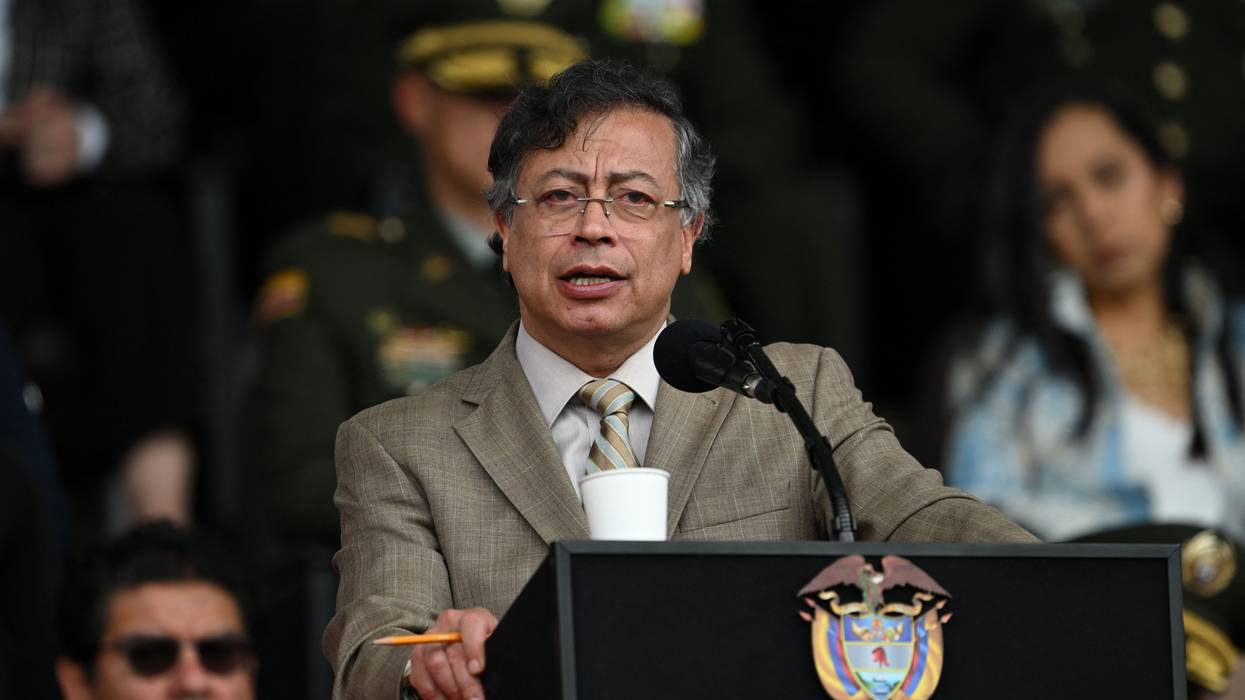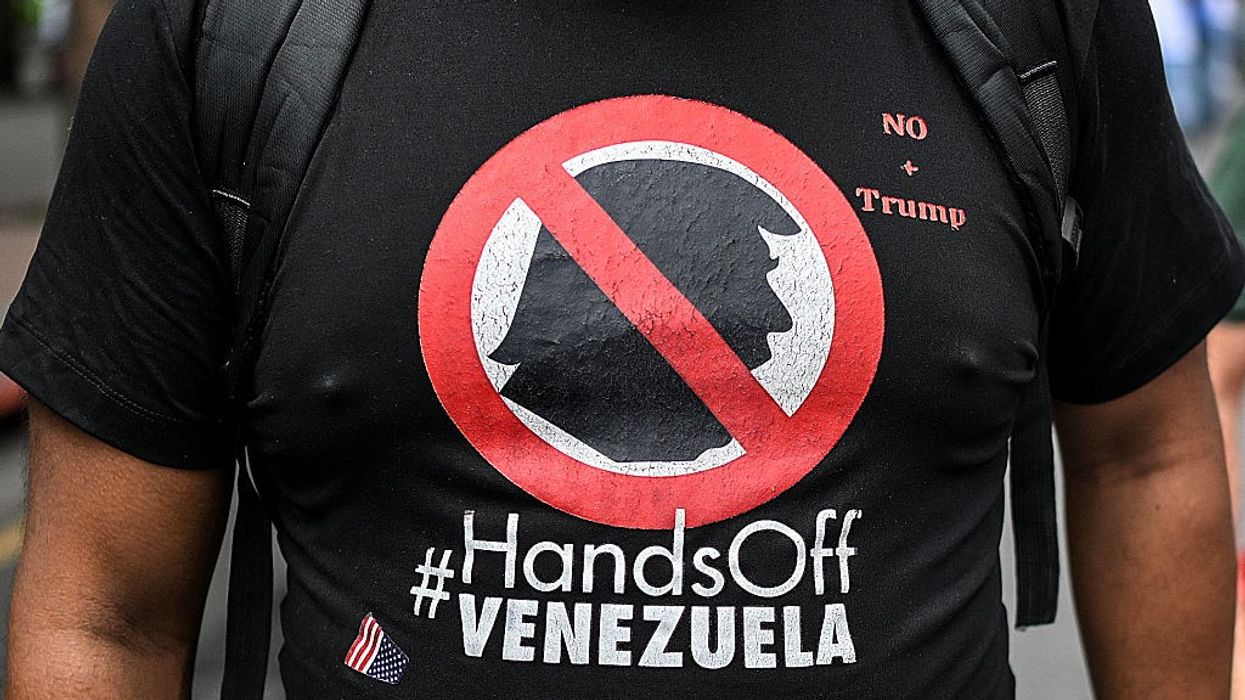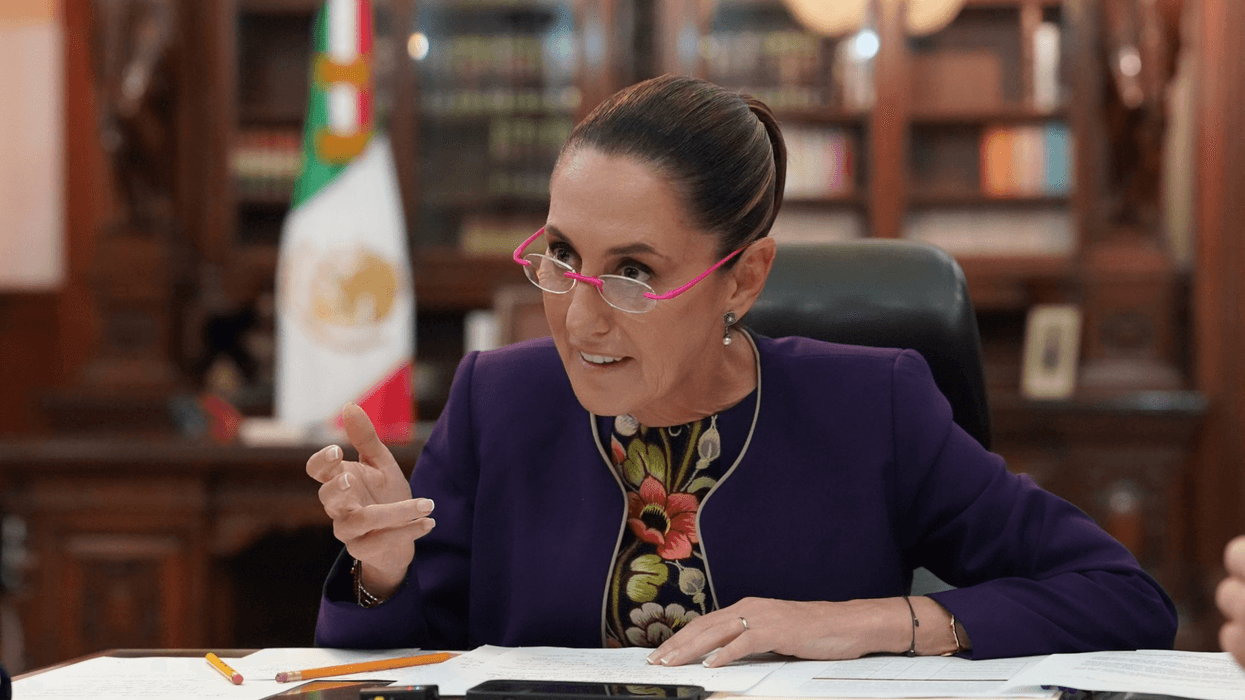“Would I launch strikes in Mexico to stop drugs? It’s OK with me. I’ve been speaking to Mexico. They know how I stand,” he said. “We’re losing hundreds of thousands of people to drugs. So now we’ve stopped the waterways, but we know every route."
Earlier this month, following reports from US officials that the Trump administration had started “detailed planning” to send US troops to Mexico, the nation's president, Claudia Sheinbaum, retorted that "it’s not going to happen."
In his comments Monday, Trump threatened to carry out strikes in Colombia as well, saying: "Colombia has cocaine factories where they make cocaine. Would I knock out those factories? I would be proud to do it personally.”
Colombian President Gustavo Petro has been one of Latin America's fiercest critics of Trump's extrajudicial boat bombings, last week referring to the US president as a "barbarian." Trump, meanwhile, has baselessly accused Petro of being "an illegal drug leader," slapping him and his family with sanctions and cutting off aid to the country.
In response to Trump's threats on Monday, Petro touted the number of cocaine factories that have been "destroyed" under his tenure. According to figures from the Colombian Ministry of Defense, around 18,000 of them have been taken out of commission since Petro took office in 2022, a 21% increase from Colombia's previous president.
Immediately after Trump issued his threat against Colombia, he backpedaled, saying: "I didn't say I'm doing it, I would be proud to do it."
However, reporting from Drop Site News earlier this month has suggested that Sen. Lindsey Graham (R-SC) "was briefed by Secretary of War Pete Hegseth on the new list of hard targets inside Venezuela, Colombia, and Mexico in early October, and lobbied fellow senators on expanding the war to include drug-related sites in Colombia."
The senator had alluded to the plans on CBS News' "Face the Nation," saying: “We’re not gonna sit on the sidelines and watch boats full of drugs come into our country. We’re gonna blow them up and kill the people who want to poison America. And we’re now gonna expand our operations, I think, to the land. So please be clear about what I’m saying today. President Donald Trump sees Venezuela and Colombia as direct threats to our country, because they house narco-terrorist organizations.”
On Tuesday, a group of Democrats in the US House of Representatives introduced another measure that would stop Trump from continuing his attacks against alleged drug cartel members without approval from Congress.
The measure would require the removal of “United States Armed Forces from hostilities with any presidentially designated terrorist organization in the Western Hemisphere,” unless Congress authorizes the use of military force or issues a declaration of war. Previous measures to stall Trump’s extrajudicial attacks have been narrowly stymied, despite receiving some support from the Republican majority.
“There is no evidence that the people being killed are an imminent threat to the United States of America,“ said Rep. Gregory Meeks (NY), the top Democrat on the House Foreign Affairs Committee, who introduced the resolution.
Meeks added that Trump’s campaign of assassinations in Latin America combines “the worst excesses of the war on drugs and the war on terror.”
Trump's threats of military action come after Hegseth announced what he called "Operation Southern Spear" last week, which he said would be aimed at "remov[ing] narco-terrorists from our hemisphere." In a description that evoked the 19th-century Monroe Doctrine, Hegseth wrote on social media that "the Western Hemisphere is America's neighborhood—and we will protect it."
In the Oval Office, Trump declared, without evidence, that with each strike his administration carries out against Venezuelan boats, "we save 25,000 American lives," which experts say is obviously false since Venezuela plays a very minor role in global drug trafficking.
Several international legal experts have said Trump’s strikes constitute a war crime. Earlier this month, Oona A. Hathaway, a professor of international law at Yale Law School, said that members of the Trump administration “know what they are doing is wrong.”
“If they do it, they are violating international law and domestic law,” Hathaway said. “Dropping bombs on people when you do not know who they are is a breach of law.”
The Trump administration has argued that its actions are consistent with Article 51 of the UN’s founding charter, which requires the UN Security Council to be informed immediately of actions taken in self-defense against an armed attack.
The administration has not provided evidence that its attacks constitute a necessary form of self-defense. But last month, a panel of independent UN experts said that “even if such allegations were substantiated, the use of lethal force in international waters without proper legal basis violates the international law of the sea and amounts to extrajudicial executions.”




